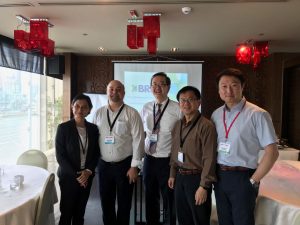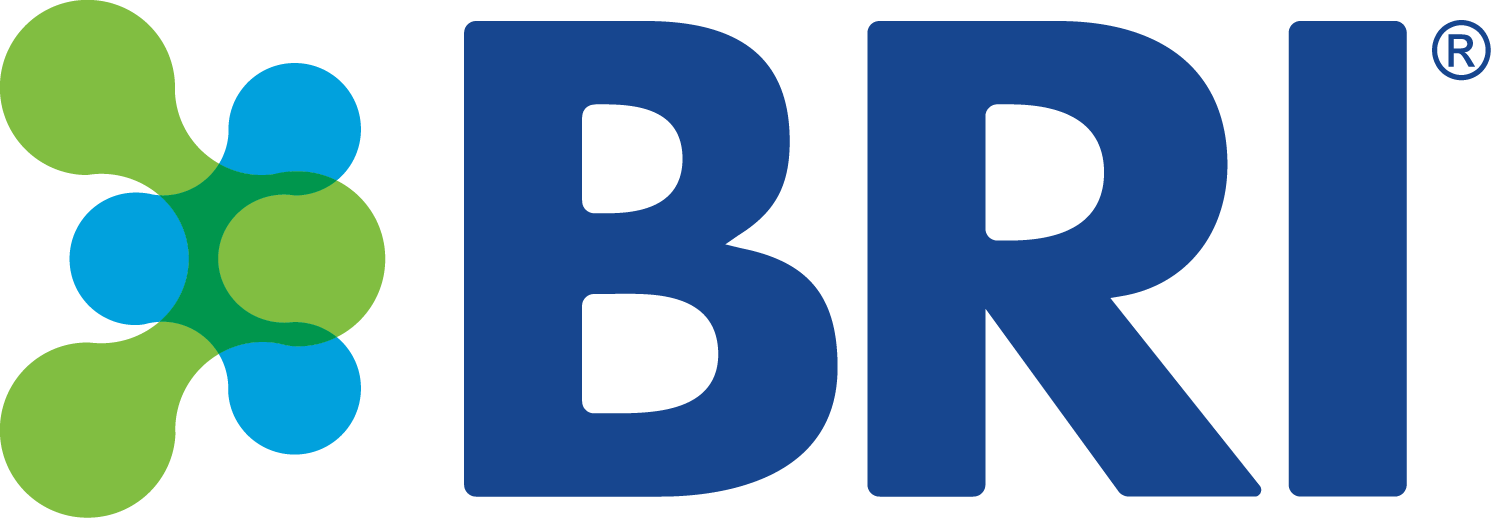BioResource International, Inc. (BRI) was proud to sponsor this year’s Feed Additives Asia conference. Held May 16 – 18 in Bangkok, Thailand, this two-and-a-half day conference brought together stakeholders in the specialty feed ingredients value chain from across the Asian region, to share ideas around the current landscape and the future trends driving the industry, both globally and in Asia. BRI was excited to be in the company of other thought leaders from the feed additive industry, along with poultry, swine and aqua producers, leading academic researchers, industry innovators, industry association members and independent consultants.

BRI CEO Giles Shih, CTO JJ Wang and Sales and Marketing Consultant Nasser Odetallah with invited speakers Dr. Yuwares Ruangpanit and Dr. Sung Woo Kim.
As part of our sponsorship, we had the opportunity to connect with a variety of producers and industry leaders at our booth and at a luncheon, which was hosted by BRI. In addition, BRI academic partners, Dr. Sung Woo Kim, professor of nutrition in the Department of Animal Science at North Carolina State University, and Dr. Yuwares Ruangpanit, professor, Faculty of Agriculture at Kasetsart University, were selected to speak in back-to-back sessions focused on advances in swine and poultry gut health, respectively. Gut health has become an increasingly hot topic for producers, as the movement away from the use of Antibiotic Growth Promoters (AGPs) in the industry has forced a closer look at feed and farm practices that result in good outcomes for animal health and nutrition.
This was my second time attending a Feed Additives conference, which is organized by Feedinfo News Service. While there were many discussions related to the feed industry as a whole, the movement away from AGPs was certainly a recurring topic. At last year’s inaugural Feed Additives conference in Frankfurt, Germany, I observed the deliberate and diligent way that Europe had successfully navigated the challenges of AGP-free production, driven by health concerns related to antibiotic resistance and other cultural and socioeconomic factors. At this year’s Feed Additives Asia conference, however, it was clear to me that producers in Asia are more circumspect of movement away from AGPs, mainly due to countervailing forces of maintaining economically sustainable production in fast growing regions, such as India and China. Regardless, many forward-thinking countries and proactive industry leaders are anticipating and planning for a time when antibiotics are no longer widely available. For either market, I believe there will not be a “silver bullet” alternative to AGPs; however, the implementation of other feed additives, such as enzymes, into poultry and swine diets continues to become a trend. We are now seeing the use of enzymes broadening from a focus on optimizing digestibility of a particular feedstuff to a more holistic understanding of the gut ecosystem and how enzymes impact the health of the gut through probiotic, prebiotic and immunomodulatory effects.
I enjoyed meeting current clients, distribution partners and colleagues at this year’s conference, as well as getting to know new ones. There were a lot of thought-provoking ideas and innovative research topics exchanged and I left feeling optimistic and excited about the future of the feed industry in Asia.



